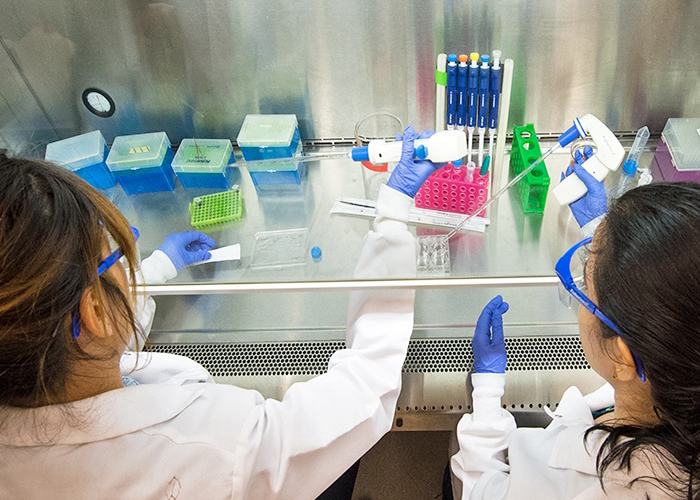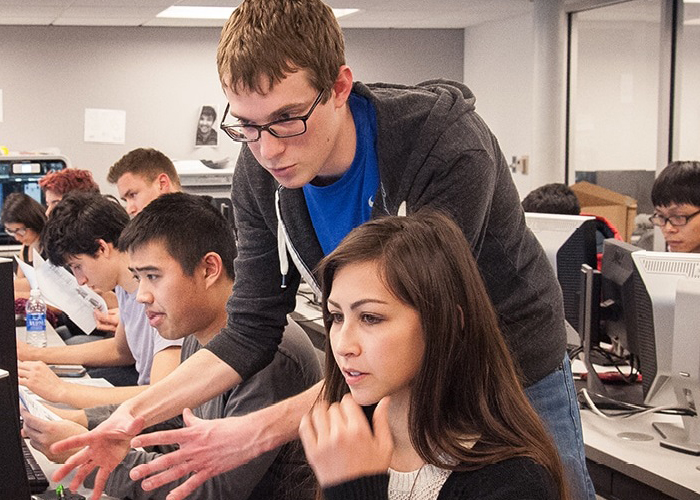Our Approach, Motivation, and Vision
In alignment with the Education 2025 strategic plan, the Core Competency Initiative (CCI) incorporates a distinctive approach that leverages faculty expertise in core areas and situates competency development in the context of the holistic student experience. Since large majorities of CMU graduates at all levels - bachelor’s, master’s, and doctoral - enter the workforce immediately following graduation, the CCI is designed to help students learn and practice key skills that employers are looking for regardless of industry or position. While discipline-specific proficiencies are regularly a focus of program review efforts, competencies that cut across departments and disciplines have been identified as ripe for further focus and support. In addition, the Core Competency Initiative seeks to leverage existing expertise and infrastructure in technology and data analytics to scale these efforts across colleges and departments and to systematically collect data that can guide continuous improvement.
Introduction to the Core Competencies Initiative
With the CCI, we envision that CMU students will be able to find relevant opportunities to develop their core competency skills and monitor their progress; CMU educators will be able to incorporate core competencies into their educational activities in a coordinated manner without having to make a huge effort; and then ultimately CMU graduates will have demonstrably stronger core competency skills they can take into their future work and lives.

Faculty Expertise
- Since its inception, the Core Competencies Initiative has leveraged faculty expertise across all Core4 competency areas.
- Faculty and educators from across the community have contributed to all phases of our work via initial committee work, development of teaching and learning resources, and participation in assessment activities.
- If you are teaching a core competency in your course or program, use this form to catalog it.

Holistic Experience
- We know that the Core4 skills are learned and practiced in many different educational experiences and learning activities.
- Our model accounts for the holistic student experience including coursework, academic support, residential living, advising/mentoring, student organization involvement, student employment and more.
- Our Learning Activity Dashboard for Students is a resource that helps students explore which learning activities on campus help them to build their Core4 skills.

Technology
- Strategic design and technology integration helps the Core Competencies team to scale our efforts across undergraduate, master’s and doctoral student populations.
- Key resources that support our approach include Canvas, OLI, Tableau, and many others. Visit our Core4 Resources for Educators to learn more.
Have a resource or tool that helps build core competency skills that you'd like to share with educators? Use this form to tell us about it.

Assessment
Just as our students are learning and progressing in their knowledge acquisition and skill development, the university is as well. We are committed to:
- Analyzing student data to better understand CMU’s educational environments and improve our teaching and learning practices;
- Prioritizing data privacy and clearly communicating with students about the nature and extent of information describing them that is held in trust by CMU; and
- Engaging in continuous consideration of how our educational environments equitably enable humane learning and academic progress.
Core Competencies Initiative Leadership |
|||
|---|---|---|---|
| Joanna Dickert Director, Core Competencies Initiative and Associate Dean of Educational Experience Assessment |
April Hawk Senior Academic Program Manager, Core@CMU |
Chelsea Leverett-Ptak Core Education Project Coordinator |
Marsha Lovett Vice Provost for Teaching & Learning Innovation |
Core Competencies Intiative Champions |
|||
| Amy Burkert Senior Vice Provost for Academic Initiatives |
Gina Casalegno Vice President for Student Affairs and Dean of Students |
||
Core Competencies Initiative Key Contributors |
|||
| Judy Brooks Director of Design, Technology-Enhanced Learning & Online Programs |
Simone D’Rosa Strategic Projects Manager, Vice Provost for Teaching & Learning Innovation |
Lynn Kojtek Learning Engineer |
Nathan Mazur Senior Visual/Multimedia Designer |
| Meg Richards Senior Systems Engineer | |||
History
The Core Competencies Initiative is the result of several lines of earlier work and conversations at CMU, including:
- Board of Trustees’ input promoting students’ core competency development in areas such as communication, teamwork, leadership, and more
- CMU’s Self-Study Report related to our 2018 re-accreditation with the Middle States Commision on Higher Education
- Several CMU colleges revising and transforming their college-level general education programs
- Division of Student Affairs advancing their residential education programs
- Deans’ Council meetings focused on the value and role of core skills as complementary and synergistic with their disciplinary curricula.
In 2019, we launched two working groups – one on collaboration & teamwork and the other on communication & presentation – to:
- conduct a landscape scan of current activities supporting the development and/or assessment of that competency,
- articulate a CMU-wide definition of the competency in terms of our graduates' outcomes in that competency area, and
- generate a set of recommendations to build on and enhance current efforts to promote students’ competency development.
After a pandemic-focused pause in CCI activity, these two groups (see committee membership) submitted fulsome reports in early 2021.
We then launched two additional working groups – one on Information & Data Literacy and the other on Intercultural & Global Literacy. As of late 2022, these two groups are making good progress and are expected to submit their reports in the coming months.
Altogether, the four competency areas represented by these first four working groups constitute our Core 4 competency areas.
| Committee Members | |
|---|---|
Collaboration & Teamwork |
Communication & Presentation |
|
|
Information & Data Literacy |
Intercultural & Global Literacy |
|---|---|
|
|